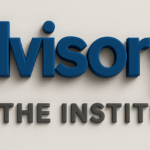The pace of change in our world today demands that we examine everything – including the way we lead – with fresh eyes.1 The speed necessary for today’s success cannot be achieved using yesterday’s command-and-control approach. There just isn’t time. Trust and empowerment are absolute requirements. These necessitate that successful leaders have the humility2 to surrender some of their historical control.
Our world is not only moving at a much faster pace, it is accelerating and at the same time becoming more and more unpredictable. VUCA (Volatility, Uncertainty, Complexity, Ambiguity) is an apt description. In short, it’s crazy out there, and speed alone will not be sufficient for success. Unpredictability is driving the need for companies to be more agile. If inertia prevents your organization from quickly changing directions, you may soon find yourself hurtling uncontrollably toward the wrong destination. Agility will help you avoid disaster. Enterprise agility is simply the ability of an organization to change direction and accelerate while in motion.
Wanted: Adaptable Leaders. Apply Within.
Agile organizations require adaptable leaders. These leaders will undergo (or have undergone) a self-examination and self-transformation.3 They will have recognized that historical leadership approaches must change within the digital era. They will see the need to extend their focus beyond just their immediate company operations to the broader business and social ecosystems in which their company is embedded.4 And they will understand that their company will not change unless they do.
Adaptability must reach beyond the decision to change leadership styles into the very core of how leaders work.
Some leaders – and some followers – may have difficulty accepting that. We have long looked up to heroes who had the courage of conviction to stand their ground. We have celebrated as they won despite overwhelming odds against them. We have criticized past leaders who appeared indecisive, wishy-washy, or lacking conviction. We have been frustrated by those who seemed to practice “management by magazine” where they subjected their team to yet another huge change after attending the latest conference or reading another magazine. The team usually knew to simply not to react too quickly and give it a little time because “this too shall pass.”
But in today’s environment, changing one’s mind after learning new information is a necessity and should be considered a sign of strength.5
Notice that this is not a whimsical change-of-mind brought about by a passing thought, the latest magazine, or the highest paid person’s opinion. And it is not just a reaction to change that is suddenly thrust upon them. It is an evidence-based decision based upon new data. In a world where information and knowledge are growing exponentially6, each of us must be on a quest for lifelong learning – actively seeking new information, new knowledge. While evidence-based decision-making cannot totally replace intuition, there is no denying its benefits – improved financial performance, increased productivity, and reduced risks.7
Care must be taken not to let the search for additional knowledge delay decision-making or cause ‘analysis paralysis’. Jeff Bezos, CEO of Amazon, said, “Most decisions should probably be made with somewhere around 70% of the information you wish you had. If you wait for 90%, in most cases, you’re probably being slow. Plus, either way, you need to be good at quickly recognizing and correcting bad decisions. If you’re good at course correcting, being wrong may be less costly than you think, whereas being slow is going to be expensive for sure.”8
Digital era leaders must use a formalized listening capability9 both personally and throughout the organization to capture new findings about customers, competitors, industry, and their ecosystem. They actively promote experimentation and A/B testing to gather more information with lower risk. Of course, this means that some amount of failure is not only accepted but encouraged and even celebrated because of the newfound knowledge it brings. They drive the extension of analytics capabilities into every corner of the organization with an aim of gaining answers to questions they haven’t yet even thought to ask. This in turn equips them with the information needed not only to react quickly but also to proactively anticipate and even influence change within their ecosystem.
When changes in direction are made, it is important that this be clearly communicated to stakeholders inside and outside the company, so they can understand the reasons behind the change.
Let’s realize that adaptability is not just making small tweaks in the way you operate. It means having the courage to change your business model and even cannibalize your products if needed. After all, if you don’t do it, someone else soon will.
Given the acceleration of change in a world that is becoming increasingly more complex and unpredictable, adaptability is a requirement for successful leadership.
Sources:
1 Bennett, Terry. “New Leadership Behaviors Needed for Digital Era Success.” Institute for Digital Transformation, 25 June 2018, www.institutefordigitaltransformation.org/new-leadership-behaviors-needed-digital-era-success/.
2 Bennett, Terry. “New Leadership Behaviors Needed for Digital Era Success.” Institute for Digital Transformation, 25 June 2018, www.institutefordigitaltransformation.org/new-leadership-behaviors-needed-digital-era-success/.
3 Bennett, Terry. “Humility Required for Digital Era Success.” Institute for Digital Transformation, 18 June 2018, www.institutefordigitaltransformation.org/humility-required-digital-era-success/.
4 Reeves, Martin, et al. “The Five Steps All Leaders Must Take in the Age of Uncertainty.” MIT Sloan Management Review, MIT Sloan Management Review, sloanreview.mit.edu/article/the-five-steps-all-leaders-must-take-in-the-age-of-uncertainty/.
5 Wade, Michael R., et al. “Redefining Leadership for a Digital Age.” IMD Business School, IMD, 16 Feb. 2017, www.imd.org/dbt/reports/redefining-leadership/.
6 Kelly, Kevin. “Kevin Kelly, The Expansion of Ignorance.” Kk Lifestream, http://kk.org/thetechnium/the-expansion-o/.
7 “The Evolution of Decision Making: How Leading Organizations Are Adopting a Data-Driven Culture.” Harvard Business Review, hbr.org/resources/pdfs/tools/17568_HBR_SAS%20Report_webview.pdf.
8 Bezos, Jeff. “2016 Letter to Shareholders.” U.S. Day One Blog, Amazon, 9 May 2018, blog.aboutamazon.com/company-news/2016-letter-to-shareholders.
9 Granito, Frank. “Assessing Readiness to Be a Digital Enterprise.” Institute for Digital Transformation, 27 Mar. 2018, www.institutefordigitaltransformation.org/assessing-readiness-to-be-a-digital-enterprise-part-three/.






A brilliant description of the kind of leader and leadership qualities needed in the digital era. Executives can use this as a self-check and to identify areas for self-change. Reminds me of the Marcus Aurelius quote: “We shrink from change; yet is there anything that can come into being without it…..? Is it possible for any useful thing to be achieved without change? Do you not see, then, that change in yourself is of the same order.”
“If you’re good at course correcting, being wrong may be less costly than you think, whereas being slow is going to be expensive for sure.”
– a very well written article, thought provoking and challenging. thank you. I took the statement above as it resonates well with what most leaders do not realise that while waiting for evidence to suggest 100% risk protection or “future-proof” they actually miss opportunities for growth or achieving the desired outcomes. This does not however suggest that leaders should not be risk averse – it basically emphasis that gathering your data, analysing , decision making and implementing should be done in an agility, especially is consumer facing business were access to products of any kind may determine your ability to capture and retain your market share. Leaders need to recognise and acknowledge the strength and skills differences within their organisations and constantly ensure adequate alignment is their deployment.